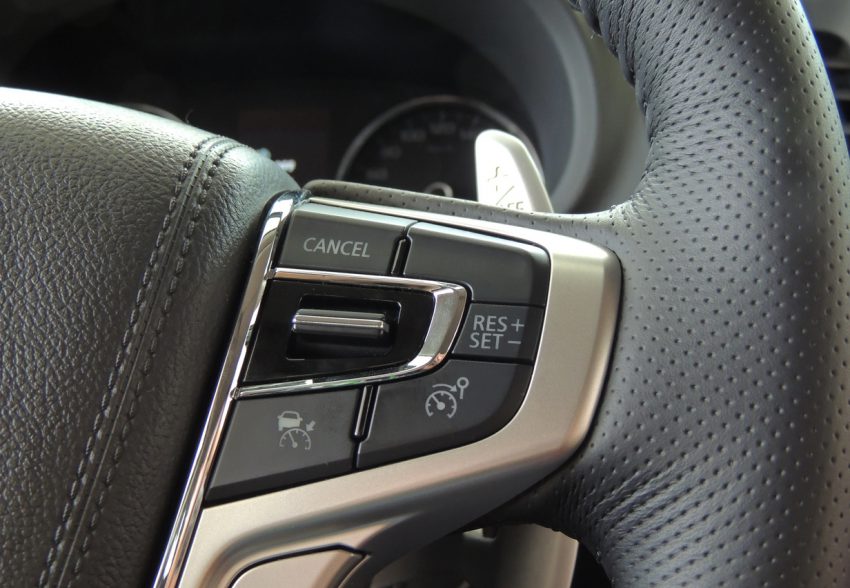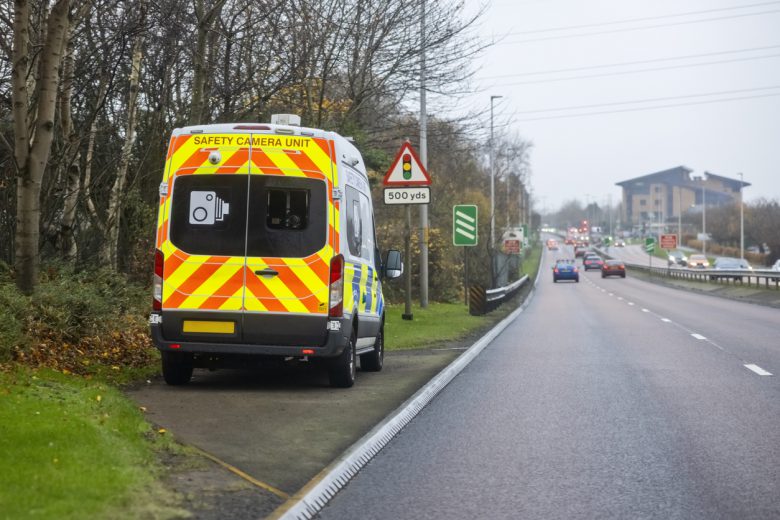
From the beginning of July 2022, all new cars sold in the UK will have to be fitted with a speed limiter. We investigate what this means for car owners and how it will change driving.

From the beginning of July 2022, all new cars sold in the UK will have to be fitted with a speed limiter. We investigate what this means for car owners and how it will change driving.

More drivers are being sent on speed awareness courses after breaking the law than ever before. The courses enable drivers to avoid points, fines and potentially expensive increases in insurance premiums.
Drivers attended the courses virtually during the pandemic with 1.5 million licence holders doing so in 2021. It was the greatest number since records began for the courses. Most of the drivers attending courses had been nicked for speeding.

Be on the wrong end of one of these you could end up on a speed awareness course (Picture iStock/south_agency)
Are you an experienced driver who thinks they’re unlikely to be caught speeding? Or have you already been nicked exceeding the speed limit and don’t know whether to choose a speed awareness course? The most exhaustive study yet on the courses offered to drivers caught speeding reveals the answers.
The report commissioned by the government looks at the increasingly popular National Speed Awareness Courses (NSAC). It assesses who is offered the courses, who accepts, and what impact the courses have on their driving. Read on to find out if you fit the profile for drivers who take speed awareness courses.

Would you be in favour of a cut in the speed limit? One expert believes that a 5 per cent reduction in maximum speeds – as little as 1mph in some cases ‑ would lead to a 30 per cent drop in fatal traffic crashes.
And what about traffic enforcement cameras and 20mph zones? When both became a part of everyday motoring life, they were greeted with dismay by many drivers. But evidence produced at the Speed Summit, held by the Parliamentary Advisory Council for Transport Safety (PACTS), shows they’re now becoming more accepted.
Speed is an emotive issue among drivers. The Department for Transport has just revealed numbers caught speeding is higher than any other year in the past decade. Nearly 6000 drivers were caught exceeding the speed limit every day in England and Wales. But inappropriate or excessive speed are two contributory factors most often recorded by police at the scene of crashes. Here are some of the latest facts behind speed and speeding.

If you’re caught exceeding the speed limit by a little, you may have the option of a speed awareness course
Drivers who get caught speeding can be offered the chance to take a speed awareness course rather than having their licence endorsed with three points and taking a fine. The classes, known as the National Speed Awareness Course (NSAC), are part of the National Driver Offender Retraining Scheme (NDORS).
Speed awareness courses first started running in 2006. But they were only operated at a local level and nationally there was little consistency behind them. The national scheme addressed this and has been in action since 2008. Last year, 1.19 million drivers in the UK attended one of these courses. With the increase in the number of drivers being caught speeding, that’s up by 165 per cent since 2010. Read on to find out more about the NSAC.
A fifth of drivers (21 per cent) think new speeding fines will have little effect. Three quarters (73 per cent) of those believe the lack of police enforcement means drivers will ignore the new fines, even though they could be hit harder in the pocket if they are caught. And 74 per cent of drivers want the speed limit on UK motorways to be increased to 80mph.
Research into the attitudes of British drivers to speeding by Green Flag revealed that new speeding guidelines, which come into effect on April 24, 2017, are unlikely to yield the desired results. The government made the changes after some local authorities in the UK reported a significant increase in drivers caught speeding compared to the previous year.
New fines will see drivers hit with a penalty that could cost them up to 175 per cent of their relevant weekly wage. According to Government figures the average weekly wage is £507. It means a driver who exceeds 101mph could be banned for 56 days and receive a £887.25 fine. Green Flag’s Simon Henrick said: “Even though this new fine structure could leave some out of pocket, drivers seem to think speeding is such a serious offence that it deserves more rigorous enforcement by the authorities.”
As road casualties increase, the government is coming under pressure to review and reinstate ambitious crash reduction targets. A report by road safety charity Brake, along with partner the insurer Direct Line, highlights some of the reasons behind the first rise for 17 years. Factors include an increasing use of the internet while at the wheel and young drivers being more likely to text while driving. As a result of the report, Brake has come up with a series of suggestions for the government to pursue. Continue reading